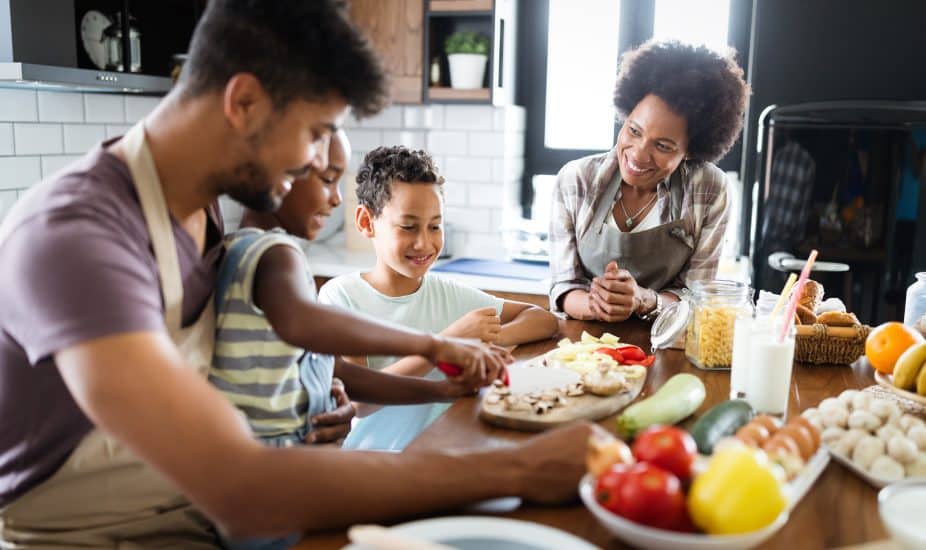There’s no question that kids who have a healthy and stable foundation do better in life. They make wiser choices and grow up to become people who have the capacity to face the many challenges of life.
And that’s why you’re here, right? To learn how you can build a better foundation for the kids in your life.
The National Center on Addiction and Substance Abuse at Columbia University authored a white paper about the importance of family dinners for a child’s overall wellbeing and specifically as a preventative measure for substance use.
They write, “Teens who have frequent family dinners are more likely to say their parents know a lot about what’s really going on in their lives, and such parental knowledge is associated with decreased incidence of teen marijuana, alcohol and tobacco use.”
The study goes on: “We know from years of research that teens whose parents are “hands on” — engaged in their teens’ day to day lives, relaxing with them, having frequent family dinners, supervising them, establishing standards of behavior, and setting positive examples of healthy behavior — are much less likely to use drugs, drink or smoke.”
Now, you might be thinking to yourself: “Duh! That’s not rocket science!”
You’re right. It’s something strong families have always done. This is a reminder to be more intentional about finding time to process together what’s going on in the world and in our lives.
Here’s our challenge for parents and caregivers:
- Be intentional with your family dinners this week
- Take turns sharing your highs and lows
- Ask each person to share something going on in the outside world they find interesting
- Take the opportunity to share stories from your previous generations — the stories that define your family
- Ask questions about school
- Share about work
- Give everyone some time to share about their ideal vacation
In other words, connect. Put the phones down. Turn the tv off. Be involved in each others’ lives.
Educators, you can encourage family time, too, by:
- Assigning students to interview a parent or sibling
- Creating mechanisms for students to review their work progress with their parents and write up a short reflection about the conversation
Connection. It’s one of the most profound and lasting gifts you can give to children.

